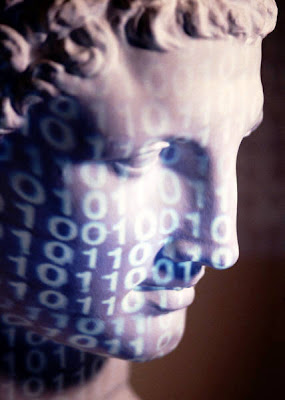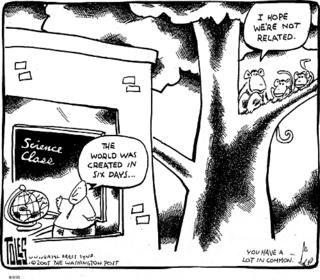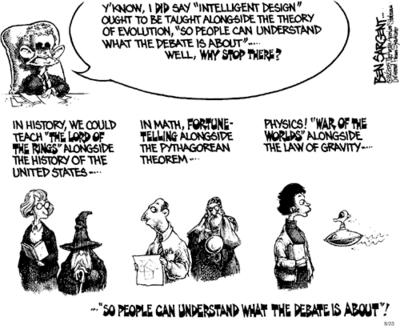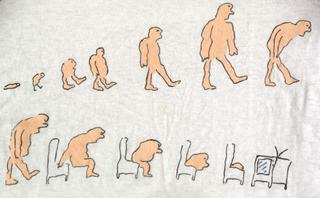Eventually Sex Would Be Used to Fill Gaps in Evolution!
Education Can Provide The Key To Success & Understanding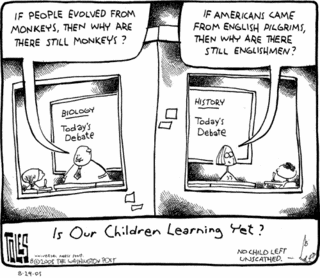
If most people believe in something, does it make it a fact? I mean, yes, the belief is very real, but does it represent the truth? Another question is how do people believe things, and, most importantly, how open are people to revising their beliefs. Unfortunately, many persons often pick a set of beliefs once and for all, without allowing for the possibility of of further inquiry and amendment. It's like picking a sports team, mostly on emotional grounds.
I think a lot has to do with how people perceive things, how they process information, and whether they lead an examined life. Education can hone an individual's critical skills. A person's personality make-up obviously affects his politics. When we have to order a pizza, there is a great probability that we are going to disagree about the toppings. So, politics is the tool we have to reach a compromise, make a decision and get the pizza delivered. And, while at it, politics determines how big of a slice a person gets. In a democracy, majority rules. It can be argued that, collectively, we get what we deserve. In this light, politics does make a big difference and it depends on the quality of the people involved in the process.
Now, if many members of our group believe that pizza is the creation of the fat-inducing devil who's hell bent on making Americans obese, then pizza can be banned. Darn, I love pizza so I hope this never happens! But, seriously, let's assume that most Americans believed in creationism, as they do, should it be taught in the schools as science? How about a flat-earth theory? Or, that human sacrifice to the Sun god is necessary. Or, that the story of Christmas is true (despite the fact that it was Washington Irwing's influence that Americans adopted this holiday in the ..18th century). Studying history is good for it adds to our understanding of our past and of the human condition through the ages, and take the attacks on science as an attempt to dumb down our society. I think there is something wrong here when more Americans believe in Satan's existence (68%) than in evolution (28%)!
Our leaders, including the president--who holds the biggest megaphone--should be more careful when they attack science. Many of them are still alive today because of science. When president Bush endorsed the pseudo-scientific theory of ID and said that ID is a "credible alternative theory" he either professes ignorance or plays a bad political game. Perhaps his "jury is still out" but science's jury was "in" even before Bush was born.
Surely, there are gaps in our knowledge; who can seriously suggest that we know all there is to know? The quest for new discoveries is exhilarating just as much as actually finding something that enriches our existence. Yet, we cannot fill in those gaps with "alternative theories" that have no basis in reality and they cannot be put to the test. Or, can we? Take for example the theory of evolution and the attacks against science from a sizeable chunks of Americans--who have no doubt that revealed knowledge is superior to acquired knowledge. OK, you want alternative theories to explain something biologists haven't figured out yet? Let's talk about sex and orgasm--the latter being uniquely a human trait. You see, biologists can explain the use for the male orgasm, but there isn't a consensus about the use of the female orgasm. Since the Bible doesn't explain this phenomenon, we could seek alternative theories to fill in the gap. I could suggest that God is a ..female, so she gave the gift of pleasure to women! Does this fit the concept of intelligent design (ID)? If school boards want alternative theories to biology, I'm sure we can supply them with lots. Besides, these theories, like ID, don't have to be exposed to the rigors of the scientific method, though I imagine researching orgasm might be need further exploration, in the name of science of course.
Evolutionists argue that life developed through natural selection over billions of years. Yet, they cannot explain for sure why homosexuals exist today, since homosexuals don't procreate. Is God, in addition to being female, is a homosexual too? [If I don't show up tomorrow, you'll know that I was stricken by Zeus's thunderbolts] If you care to read more about an interesting examination of the female orgasm, read Elizabeth Lloy'ds book, The Case For The Female Orgasm.
Education is not just about committing facts to memory, but it should be the key to opening one's mind. It can serve as a tool of understanding the world around us, the past and the future. Why place artificial limits to our mind and our intelligence? From the origins of Earth and ours, to the glimpses of the universe, we have a lot more to learn. Keep searching and keep supporting education.
